Courses
The following trainings can be taught in a variety of formats, online and in-person. As part of all Transition Trainings, you will build mutually-supportive relationships with other participants, develop new skills and knowledge, receive guidance for overcoming the specific challenges you are facing, and create a plan for action
Please visit our events calendar to see trainings that have already been scheduled or click here to learn how you can host your own training.
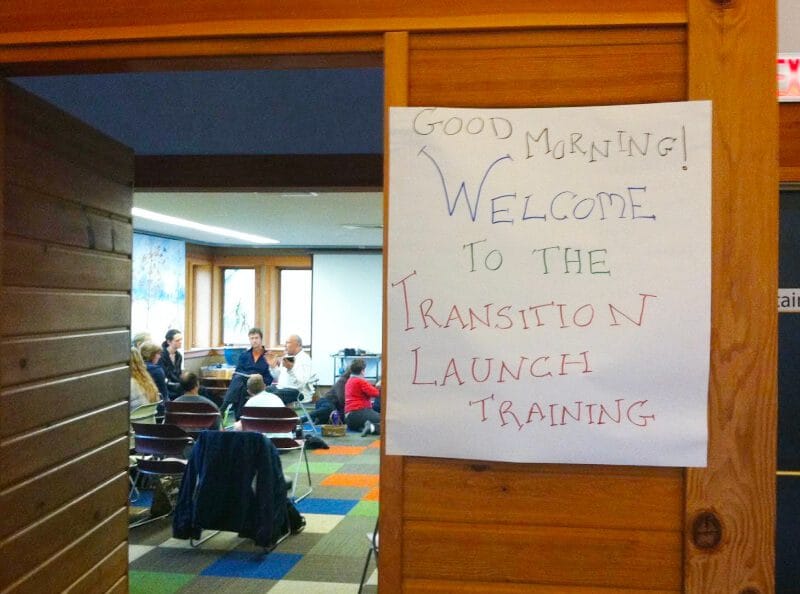
Transition Launch
Our most popular course, Transition Launch teaches how to set up and run a community-based change initiative right where you live. Launch is ideal for those who are new to the Transition Movement and want to learn more about its holistic, grassroots approach to social, economic, and environmental transformation.
Topics typically covered include: making sense of our global context, harnessing the power of positive vision, forming effective groups, engaging your community through events and practical projects, cultivating partnerships and networks, and strengthening inner resilience.

Transition Talk Training
Learn how to communicate about Transition in a way that engages, informs, and inspires! Transition Talk Training provides you with everything you need to begin delivering dynamic presentations about the Transition Movement throughout your local community and beyond.
This includes a standard PowerPoint you can use and adapt as you wish, tips for effective public speaking, and opportunities to practice your delivery and receive feedback from your peers. Transition Talk Training will also help you hone your “elevator pitch”, attract speaking invitations, connect with diverse audiences, and respond skillfully to difficult questions.

Transition Thrive
Designed for more experienced changemakers, Transition Thrive can be thought of as the sequel to Transition Launch. While Launch focuses primarily on the first few steps of the Transition process, Thrive builds upon this foundation to suggest additional strategies for broadening, deepening, and scaling up initiatives over time.
Topics may include: strategic thinking, distributed governance, grassroots fundraising, reaching beyond the choir, local economic development, and avoiding burnout.
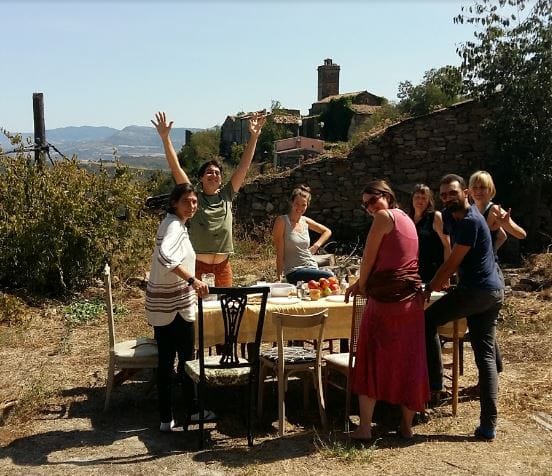
Inner Transition
Inner Transition is an exploration of the psychological, emotional, spiritual, and cultural dimensions of change. By engaging in this work, we become healthier and more empowered individuals, as well as more skillful and compassionate leaders.
While there is currently no standard Inner Transition Training, many Transition Trainers and members of the international Inner Transition Circle offer related workshops on the psychology of change, shifting paradigms, cultivating mindfulness, finding purpose, working with trauma and grief, and unlocking our full human potential.
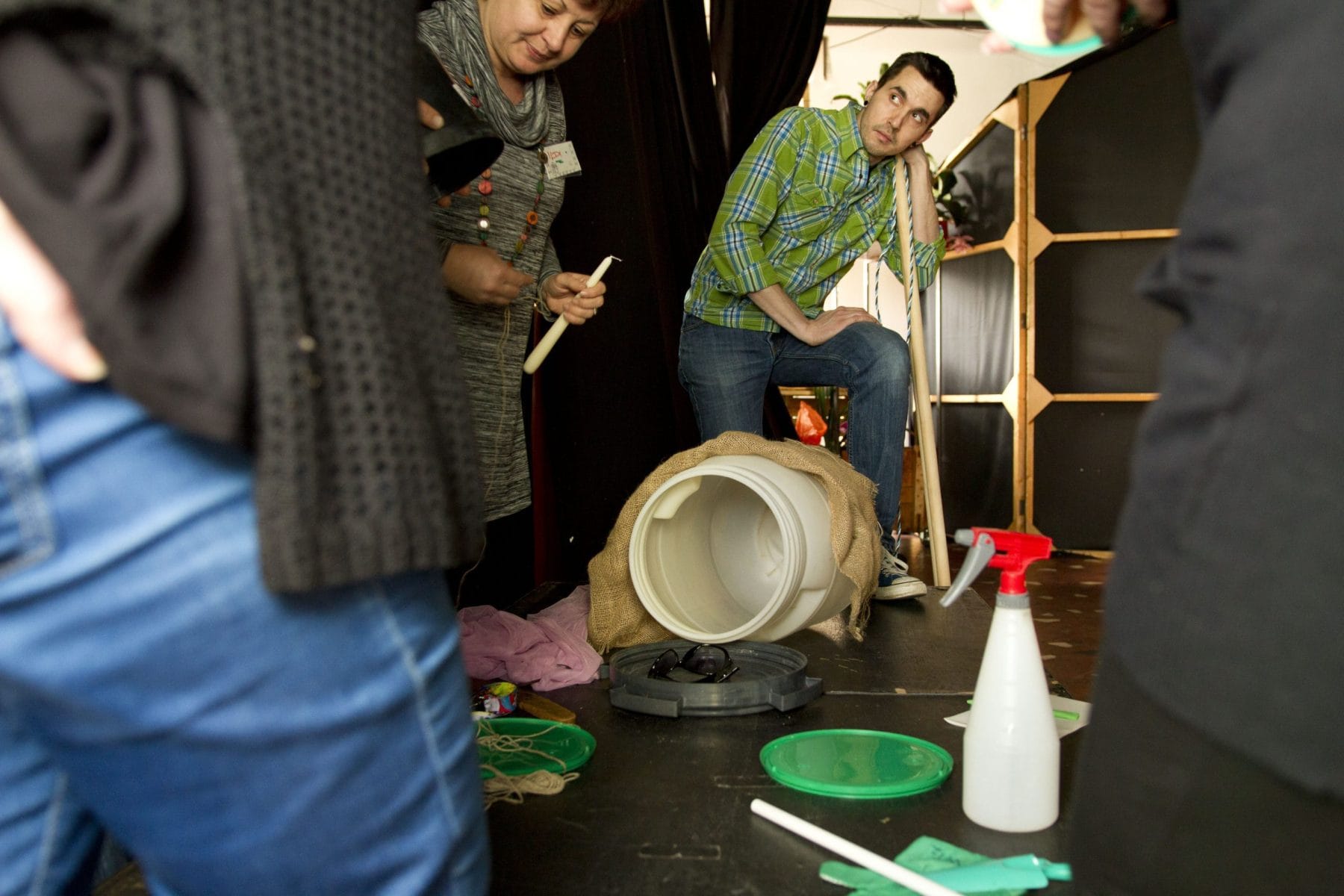
Effective Groups
Specifically created to support those working together in groups for social change, Effective Groups Training was originally developed by Nick Osborne and remains available through his nonprofit, Evolving Organisation.
There are also many other Transition Trainers who offer similar workshops on Sociocracy and Holacracy, collective decision-making, Nonviolent Communication, and transforming conflict. Because a group’s external success depends on its internal culture, learning how to work together more effectively may be the most important investment you can make in your initiative’s future.

Municipalities In Transition
What was formerly known as the Municipalities in Transition project has recently rebranded as KuneLab. Spearheaded by five members of our international Trainers Community of Practice, they have so far trained 15 different communities to use their Local Transformation Toolkit.
Their current mission is to confront “systemic problems with solutions based in systems thinking and process design.” Please contact KuneLab directly with inquires related to Municipalities in Transition Training.
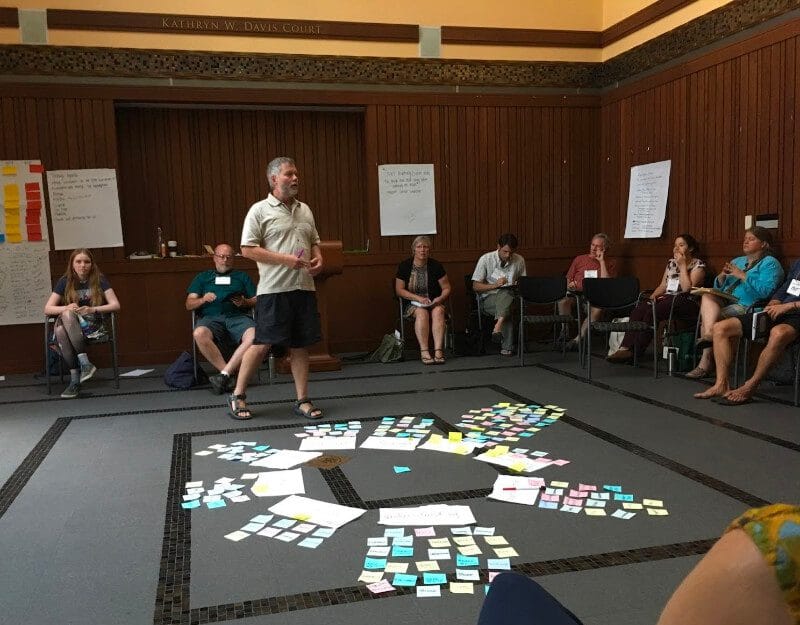
Beautiful Economies/REconomy
REconomy is a term that is used to refer to a wide variety of efforts related to local economic development.
Although the UK-based REconomy Project is not currently active, there are many Transition Trainers around the world that offer courses and workshops on creating local economic blueprints, social entrepreneurship, establishing local currencies and investment clubs, and supporting the growth of more equitable, sustainable, and beautiful local economies in general.
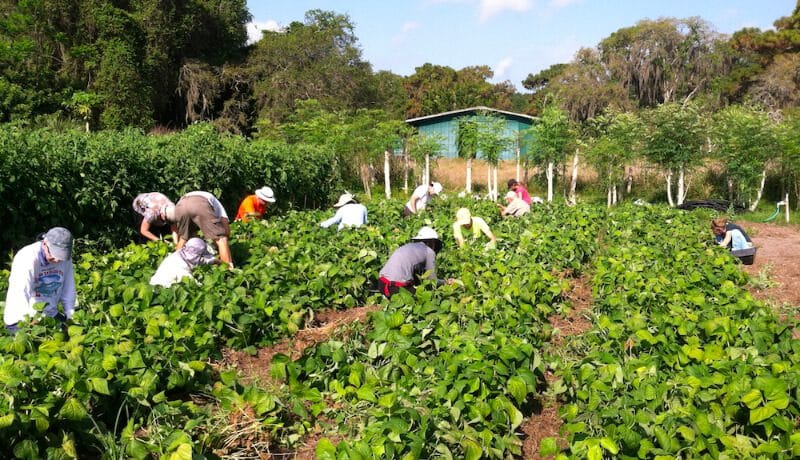
Resilient Food Systems
Growing more resilient local and regional food systems is another very important aspect of Transition. While there is no standard Resilient Food Systems Training, many Transition Trainers teach courses and workshops on related topics such as Permaculture Design, ecological gardening and farming, and eat local/grow local campaigns.
You may also request training in how to set up specific projects like permablitzes, gleaning programs, community gardens and food forests, and local and regional food distribution systems.
Host a Training
Build meaningful relationships, develop collective leadership, and catalyze inspired action by hosting a Transition Training in your local community.
If you’re interested in potentially hosting a Transition Training in your local community, please check first if you have a national or regional hub in your area that coordinates trainings. If there is, please contact them directly. If there isn’t, you can either search for Transition Trainers in your area here or fill out this form to receive support from our international Training Coordinator.

Closing ceremony on the Training the Trainers course.
Although every training is somewhat different, here are some things that all hosts should consider:
Benefits of Hosting
- Hosting a training can be used to help launch a new initiative or reenergize an existing one.
- Trainings also enable community-building and facilitate deep bonding among participants.
- Transition Trainers have been certified to deliver high-quality courses and workshops based on best practices developed and refined over the past two decades by the international Transition Movement.
- Whether you partner with Transition Network or another Transition Hub, you will receive help with organising and promoting your training.
- Once all costs are covered, your initiative is welcome to keep whatever profits remain to fund your programs and activities. This can be substantial.
Responsibilities of Hosting
- It is your responsibility to negotiate equitable compensation with the trainers you select. For courses longer than one day, we typically recommend hiring two co-trainers. In addition to a set fee, compensation also usually includes travel, lodging, and food for trainers.
- You will need to secure a suitable venue for the training that reflects the values of the Transition Movement. While no place is perfect, this generally means that the venue meets everyone’s basic needs, is committed to just and sustainable practices, has at least some natural light, and provides access to nature.
- Depending on the location and format of your training, you may need to provide food and drink, lodging, and transportation for participants as well. It is always recommended that there are at least basic refreshments available throughout the day.
- Some hubs will be able to help you with registration, but others will expect you to do that yourself. Those hubs that do provide assistance usually require a small percentage fee to cover the costs of coordinating this.
- Although most hubs offer promotional support, you will be primarily responsible for course publicity.
- You may also be asked by trainers to make photocopies of handouts and provide needed equipment such as flip charts and white boards with markers, a projector and screen, computer speakers, etc.
Other Financial Considerations
- As host, you are responsible for covering all of the costs related to training. To ensure that all trainings at least break even, we usually set a minimum number of registrations required for the course to run, and that number is not met a month in advance of the training, it is cancelled. While the vast majority of courses fill easily and it’s unusual to have to cancel a training, in order to give yourself the best possible chance of success, we recommend you begin promoting your training at least three months in advance.
- While you are free to determine how you price registration, we strongly suggest that you set the standard price at a level that will cover your costs while remaining as affordable as possible. We also suggest that you provide full or partial scholarships for everyone who requests one and invite those who can to donate to your scholarship fund.
- Selecting trainers who are as close to you as possible can help minimise travel costs and environmental impact. You can also reduce expenses by seeking out a free or discounted venue and asking local participants to host trainers in their homes.
If you aren’t ready to host a Transition Training yet but would still like to participate in one, you can view currently scheduled trainings on our events calendar and fill out this form to receive notifications of future trainings happening near you or online.
